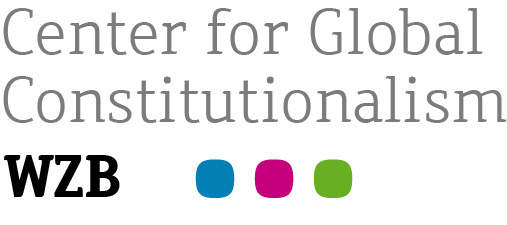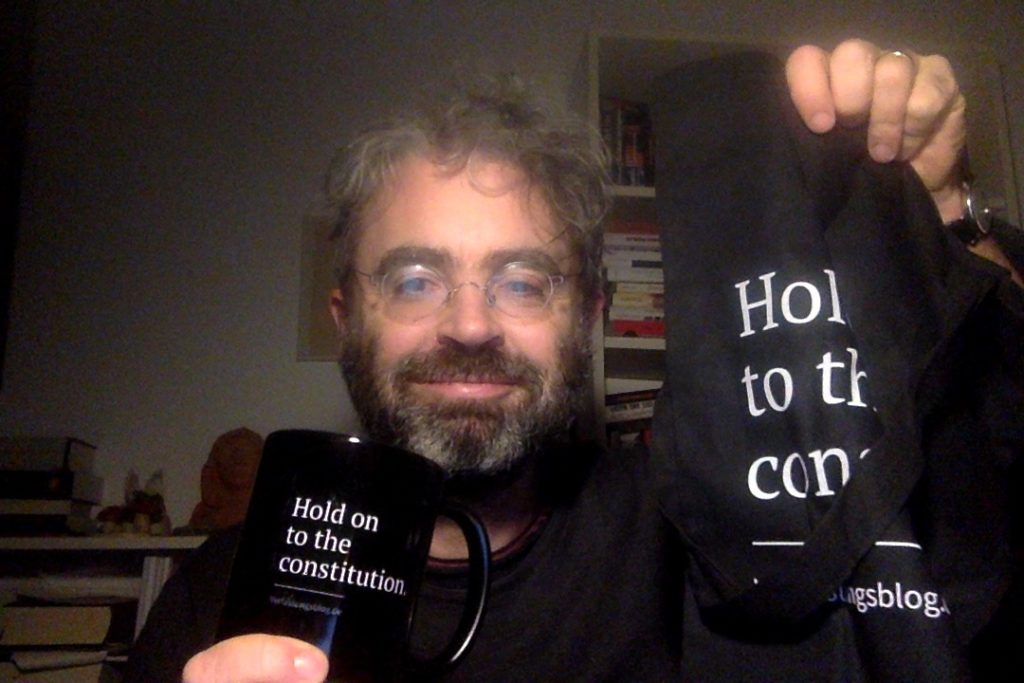No longer naive
On 22 February 2020, a 78-year-old man died of a coronavirus infection in the northern Italian province of Veneto. This was the first Covid-19 death in Europe.
No more than a year ago.
Immunologically, a population with no previous contact with a new pathogen is – another thing we learned this year – called naive. Our immune system was naive: unprepared, clueless, ambling through the world, whistling and carefree, seeing this curious little virus and saying: oh! look at that, and before one knew it one was ill or dead.
It seems to me that this metaphor could be taken even further. Politically, Europe was also naive in a way when the virus arrived. There had been nothing like it in living memory, and if people now ask why so many countries in Asia and elsewhere are faring so much better than we do here, then this is where I would look for the answer: They had SARS. They were not naive.
Now, one year later, neither are we. I’m not saying that we are immune and safe in all respects and for all time now, of course (speaking of naive). But the pandemic will henceforth be in our collective memory, an alarm ready to go off whenever we encounter something that irritates us: Wait a minute. This reminds us of something. It resembles something we have experienced before. We can’t say exactly what or how. But it was something dangerous. This irritates us. This alarms us. This puts us on guard. (For better or worse, there are also autoimmune reactions…).
This irritation needs not be limited to viruses. In future, the memory of the pandemic will irritate us wherever there is talk of borders, boundaries, controls and traffic interruptions. We will remember it as a case where the demarcation of borders suddenly made sense in a way that had nothing to do with exclusion. This was not about an inside that demarcates itself from an outside in order to give itself form and identity. You were stopped from going from Mitterteich to Tirschenreuth lest you carry the virus from here to there, that’s all. Wherever the virus spreads, traffic must be interrupted and controlled, whether at the state, district, municipal, property or housing border. The state border is usually not what matters much at all, unless the other side fails to keep their own local infection foci isolated.
++++++++++Advertisement++++++++
Call for Papers: MCEL-NOVA Workshop ‘EU Democracy and Rule of Law’

Maastricht University (online workshop)
24&25 June 2021
The common values of the EU project and how to protect them: in the framework of the Jean Monnet NOVA project, the Maastricht Centre for European Law (MCEL) has launched a call for papers for the workshop on ‘EU Democracy and Rule of Law’.
The full text of the call, open to both junior and senior scholars, is available here.
The deadline for the 500-words abstracts (to be submitted here) is 28 February 2021.
++++++++++++++++++++++
In general, the idea that you retreat behind castle walls in times of danger, that you pull up the bridges and leave everyone out there to their fate for the sake of your own protection, is already very much irritated by the pandemic experience. As FRANK DECKER and FEDOR RUHOSE pointed out this week: If Saarland allows shops to re-open without talking to Rhineland-Palatinate first, then droves of Rhineland-Palatinatians, infected or not, will flock to Saarland to shop and spread the virus all over the place. In a pandemic, a functioning border regime needs the cooperation of both sides, inside and outside. In the Federal Republic, this coordination work is done by the much-reviled Conference of Minister Presidents, in Europe by the EU, and the mistakes and omissions that may have been made in the joint ordering of vaccines and the coordination of border closures at the EU level only underscore their necessity. Over on the other side of the Channel, Boris Johnson is trying his hand at a kind of counter-model, an empire après la lettre with England as its centre, wishing to see from its insular castle walls nothing but more or less useful periphery in all directions. Let’s see how long he can hold on up there. Meanwhile, in Italy, the Cinque Stelle, of all parties, have elected Mario Draghi, of all people, as head of government.
The pandemic experience will also irritate our view of fundamental rights in the future. There are no libertarians in a pandemic, I read somewhere during the early days of COVID-19. That turned out to be a fallacy insofar as hardly a day went by without our ears being split by the clamour of alleged victims of liberty violations, enraged about the fact that the pandemic imposed upon them the burden of having to restrict themselves in one respect or another. But in fact it has provided us with more than enough illustration to show how thoroughly misguided the libertarian concept of freedom is. If you think, in a situation where everyone is potentially equally dangerous and endangered, that freedom is something that is to be individually maximised, you will lose touch with reality. You can only keep this up if you believe Christian Drosten is a conspirator, Angela Merkel is a dictator and/or the coronavirus is a hoax. There are libertarians in a pandemic, but conspicuously many of them seem to have moved to Crazytown.
Finally, the memory of the pandemic will irritate our understanding of a state of exception and emergency. Actually, a pandemic is a prime example of such a state, one would think: In a plague, as in a war, the civic rules and norms that usually apply turn into an existential danger and must therefore be temporarily suspended. That, however, turns out to be just not true. The principle of proportionality has taken the function of a regulator with which the scope of what can be prohibited can be adapted to the respective necessities, even and especially in the hour of danger. This whole contrast between a regulated state of normalcy and a ruthlessly decisionist state of exception – maybe it’s all just humbug after all, told by men who would like to be more powerful than they are or should be? This is how the irritation works in us, and not to our detriment.
++++++++++Advertisement++++++++

Academic freedom is constitutive of the liberal script so far as it is inherent to individual self-determination and social progress. Yet, we are witnessing contestations and rejections of scientific evidence and expertise. How do different contestants and contestations relate to each other, and which arguments are employed? Panel 136 ‘Fake News, Truth and Academic Freedom’ at the upcoming DVPW 2021 invites contributions from various disciplines.
++++++++++++++++++++++
If we now also learn from this current experience to distrust the self-empowering argument of many in government that the aim to measure their pandemic policy and its proportionality against is first and foremost to protect humans from death (“every death is one too much”) rather than to keep the health system from collapsing, then we will indeed be more robust than before. Of course, when the next pandemic comes, people will still die in great numbers. More than this time, perhaps. Not to mention the imminent or already present climate catastrophe. But we will no longer be so naive. We will avoid mistakes and waste less time and energy. That is not nothing.
For the time being, however, we are still stuck in this pandemic. Once again, lockdown. Once again, springtime outside. Déja vu…
This week on Verfassungsblog

To all the fantastic people who followed our call and now support us on Steady or already did so before, we have sent out a voucher as a thank you. You can use it to get one of the – in our opinion – pretty cool mugs or tote bags we had designed. (We can only ship within the EU, though. Otherwise the taxes and shipping fees would kill us. Apologies for that!) They are rather well received, especially the mugs, according to our impression. You want one, too? This way please.
And what’s been going on the blog? Apart from FRANK DECKER’s and FEDOR RUHOSE’s already mentioned review of the pandemic and what it reveals about the German system of government, quite a lot:
One trend that seems to be emerging in large parts of Europe right now seems extraordinarily disturbing to me: governments threatening academic freedom at universities, ostensibly to protect academic freedom. Free speech versus “cancel culture”: this false dilemma is served by the British Education Minister Gavin Williamson with his plan to appoint a “Free Speech Champion”. In France, the government seeks to purge social sciences of allegedly pernicious American influences under the infamous label of “Islamo-Leftism”. And in Greece, the parliament last week passed a law providing for a permanent police presence on university campuses, ostensibly to protect academic freedom. EIRINI FASIA believes that the law violates the constitutionally guaranteed self-government of universities and is generally highly questionable.
++++++++++Advertisement++++++++
Heidelberger Salon digital: Democracies Out of Sync? On Checks and Balances in EU Member States

26.02.2021 | 14:00-16:00 | via Zoom / Livestream
A book launch conversation to mark the publication of “Defending Checks and Balances in EU Member States. Taking Stock of Europe’s Actions” (edited by Armin von Bogdandy, Piotr Bogdanowicz, Iris Canor, Christoph Grabenwarter, Maciej Taborowski, Matthias Schmidt, Springer 2021).
With Adam Bodnar, András Jakab, Justyna Łacny, Christoph Möllers, Joseph Weiler et al.
In cooperation with re:constitution and Rzecznik Praw Obywatelskich.
The event will be livestreamed via Verfassungsblog and Völkerrechtsblog. For active participation, please register until 24 February 2021 at berlin@mpil.de
The book is available open access.
++++++++++++++++++++++
In Myanmar, the military has taken power again. SUJIT CHOUDHRY and ASANGA WELIKALA pick apart the claim of the uniformed autocrats that their coup is constitutionally justified and come up with recommendations on how the international community should react.
Experts in international humanitarian law have been thinking for some time about how data should be treated under the existing legal framework for armed conflict. ROBIN GEISS and HENNING LAHMANN think that the discussion on the status and possible protection of civilian data in armed conflicts needs more clarity.
In the parliamentary elections in Kosovo on Sunday, the population voted out the old political elite. The opposition party leader, Albin Kurti, wants to become prime minister, but a criminal conviction could be his undoing. MIMOZA BECIRI explains what this is all about.
The ruling of the Serbian Constitutional Court on the illegality of pushbacks of refugees to the EU is examined by VUK RAIĆEVIČ.
On 16 February, the ECtHR ruled in favour of Germany in the case of Hanan v. Germany on the 2009 NATO Kunduz airstrike that killed civilians in Afghanistan. KALIKA MEHTA explains why the ruling is disappointing.
In Brazil, a few days ago, former Brazilian army general Villas Bôas revealed in an interview how the army pressured the highest federal court in the case of former president Lula in 2018. According to EMILIO PELUSO NEDER MEYER and ULISSES LEVY SILVÉRIO DOS REIS, the general’s threat shows how fragile Brazilian democracy is.
In the first decisions of the Facebook Oversight Board on ‘hate speech’, the context of the content plays the decisive role. JUNCAL MONTERO REGULES shows that the board neglects some context in its own analysis. It is not a good omen when the institution that accuses Facebook of not taking enough context into account makes the same mistake itself.
In Turkey, President Erdogan is calling for a new constitution less than three years after the last constitutional amendments came into force. MAHIR TOKATLI looks back on how constitutional changes have become common campaign promises in the past, and examines what might be expected this time.
In Germany, there is a stricter obligation to wear a face mask, and this hits recipients of transfer payments particularly hard financially. After all, the law now entitles certain welfare recipients to receive ten free face masks, but others not, and it excludes asylum seekers. MARJE MÜLDER sees this as unconstitutional unequal treatment.
The decision of the German Federal Constitutional Court to exclude its new member Astrid Wallrabenstein from the PSPP proceedings on grounds of bias prompts CHRISTIAN WALTER and PHILIP NEDELCU to take a detailed look at the binding effect of the Court’s reasons for judgement in the subsequent enforcement proceedings.
That’s all for now. Thank you for your attention, and see you next week!
Max Steinbeis



